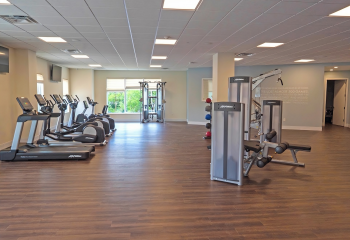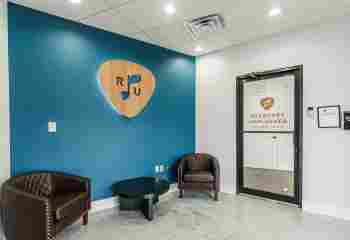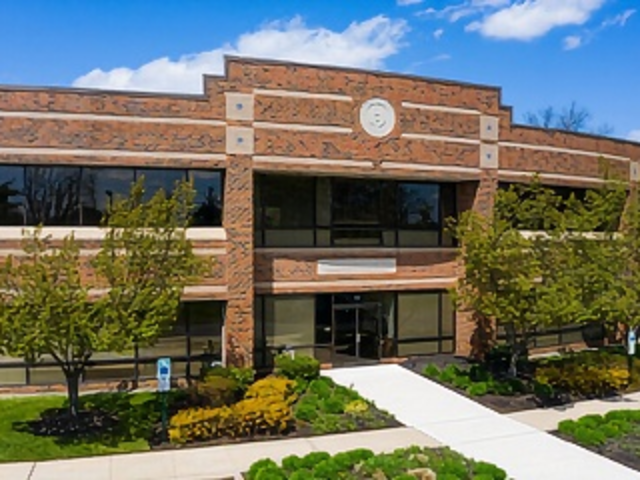More About Intensive Outpatient Programs
What Is an Intensive Outpatient Program?
An Intensive Outpatient Program (IOP) provides more intensive and comprehensive addiction/mental health care than traditional outpatient therapy but is less restrictive than a residential program. IOP is designed for those who require a higher level of support and treatment than regular outpatient sessions but do not need 24-hour supervision in a hospital or residential center.
IOPs typically involve several hours of treatment daily, several days a week. The duration of an IOP can vary, but it usually ranges from a few weeks to a few months.
IOPs are designed to accommodate people who may have work, school, or family commitments, allowing them to receive treatment while maintaining their daily routines.
IOPs are generally a step down from residential care or partial hospitalization (PHP). And as the clients progress through the program, they may gradually reduce the frequency and intensity of treatment sessions. This prepares them for a successful transition back to regular outpatient therapy or other forms of aftercare.
Benefits of Attending an IOP
Attending an IOP can offer significant benefits if you are dealing with mental health challenges or substance abuse issues. Some of these benefits include:
- Structured Support: IOPs provide a structured and supportive environment, offering a consistent schedule of therapy sessions and activities. This structure can help you establish a routine, which is often essential for recovery.
- Intensive Treatment: You’ll receive more intensive treatment than traditional outpatient therapy. This allows for more in-depth exploration of issues and provides ample time for skill-building and coping strategies.
- Flexibility: IOPs offer more flexibility than residential programs. You can attend treatment during the day or evening and continue to work, go to school, or attend to family responsibilities.
- Peer Support: Group therapy is a crucial component of IOPs. It gives you the opportunity to interact with peers who are facing similar challenges. This peer support can foster a sense of belonging and reduce feelings of isolation.
- Skill Development: IOPs focus on teaching coping skills and relapse prevention techniques. You’ll learn valuable tools to manage stress, how to handle triggers, and navigate life's challenges.
- Transitioning Support: After leaving a residential program, IOPs can be a stepping stone between intensive treatment and regular outpatient therapy. This gradual transition can ease the process of reintegrating into everyday life.
Another benefit of IOPs is the cost. Compared to residential programs, IOPs tend to be more cost-effective. They offer intensive treatment without the higher expenses associated with 24/7 care in a facility. The cost can vary depending on several factors, but many programs will accept insurance. Whatever the cost, remember that investing in your well being is the greatest investment you can make.
What to Expect in an IOP
IOP treatment may include a range of scheduled treatment services—including one-on-one counseling, group therapy, psychoeducation, and case management—for at least 9 hours a week. Sessions are often conducted across several days per week, though the exact number of hours and days per week may vary depending on patient needs. For some people, intensive outpatient programs represent step-down SUD treatment after prior inpatient, residential, and/or withdrawal management efforts.
In other cases, IOPs serve as a step-up level of care from more standard, and less intensive individual or group outpatient treatment.3,4 Patients can expect IOPs to offer them somewhat more flexibility in when and where they receive treatment while still providing structured and comprehensive addiction treatment care. Furthermore, IOPs will allow real-time application of recently learned recovery skills, as people are able to interact with family, friends, and in other real-life situations outside of treatment hours. As with other levels of care, intensive outpatient programs may combine medications, counseling, and a variety of behavioral therapies, depending on the patient’s needs. Some behavioral therapeutic approaches that may be employed during an IOP include:
- Cognitive-behavioral therapy (CBT): Helps people identify and change negative thought patterns and behaviors related to substance use.
- Dialectical behavior therapy (DBT): Teaches mindfulness, emotion regulation, and interpersonal skills to manage cravings and cope with stress.
- Motivational interviewing: A client-centered approach that helps people explore and resolve their ambivalence about change, enhancing motivation for recovery.
- Family therapy: Involves family members in the treatment process to improve communication, address dysfunctional patterns, and provide recovery support.
Treatment Included in Intensive Outpatient Programs
Intensive Outpatient Programs are designed to provide comprehensive treatment for mental health challenges or substance abuse issues. At the core, they will offer a variety of therapies. For individual sessions, this might include cognitive behavioral therapy (CBT), dialectical behavioral therapy (DBT), and eye movement therapy (EMDR).
CBT is a widely used therapeutic approach that identifies and modifies negative thought patterns and behaviors contributing to your addiction or mental health issues. DBT might be a fit for you if you struggle with emotional regulation difficulties. It helps you learn mindfulness, distress tolerance, emotion regulation, and interpersonal effectiveness skills. EMDR involves tracking an object with your eyes while you retell your trauma. This helps desensitize you to any distressing feelings that come with these traumatic experiences.
More helpful therapies you’ll likely participate in include group therapy and family therapy. Group therapy provides a supportive and empathetic environment, fosters a sense of community, and promotes skill-building through shared experiences. Family therapy allows family members in on the treatment process and aims to improve communication, address family dynamics, and support your recovery.
You’ll learn practical skills to help you manage daily responsibilities, build healthy routines, and improve your ability to function independently. After completing the IOP, you’ll practice strategies and tools to recognize triggers, prevent relapse, and maintain long-term recovery. And you can also address any co-occurring disorders you may have.
All in all, IOPs help you to address various aspects of your well-being, promote personal growth, and support long-term recovery. Each IOP will have a unique blend of therapies and activities tailored to your needs.








































































































